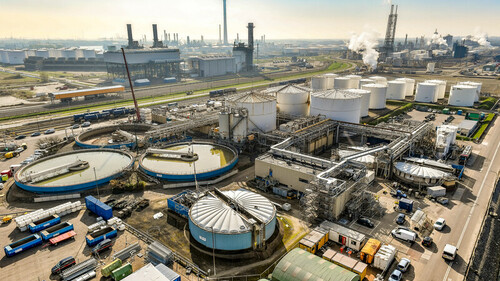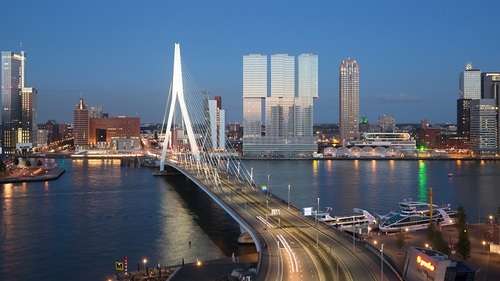Shell takes final investment decision to build solvent deasphalter unit at Pernis refinery in Rotterdam, The Netherlands
Shell today announces it has taken the final investment decision to build a major new unit at the Pernis refinery in Rotterdam, the Netherlands. The solvent deasphalter (SDA) unit will remove heavier fractions from crude oil, allowing the refinery to upgrade a larger proportion of its oil intake into lighter, high-grade products.
“This important investment demonstrates our ongoing commitment to refining,” said Lori Ryerkerk, Executive Vice President for Shell’s global Manufacturing business. “The Pernis refinery plays a key role in the European market and this modern and innovative unit will further improve its performance and competitiveness.”
Construction work is planned to start next year, subject to permit approvals, with completion expected by the end of 2018. The new unit will not change the refinery’s total processing capacity, but will allow a different product mix. Some existing units will require modifications in order to integrate with the new SDA unit.
Shell Pernis is the largest integrated refinery complex in Europe and occupies a strategic location in the Rotterdam industrial region. It has a strong track record of safe and reliable operations.
The SDA unit will give the refinery more flexibility to respond to market developments and reduce the environmental footprint of its products. The investment strengthens Shell Pernis’ position as an important contributor to the Dutch economy and as one of the largest employers in the Rotterdam port area.
Shell Pernis is the largest integrated refinery/chemicals manufacturing site in Europe with a capacity of 404,000 barrels per day. It makes a wide range of products, including a variety of fuels and feedstock for chemical plants.
The site employs around 1,900 staff and 1,000 contractors on average. At its peak, around 1,000 more people will be working on the construction of the SDA unit.
It is one of several integrated complexes that make up Shell's Global Manufacturing business. Other such integrated facilities operate in Singapore, Canada and the US Gulf Coast.
Shell Global Manufacturing is part of an integrated value chain that converts crude oil into high-value products, which are moved and sold around the world for domestic, industrial and transport use.
Today, our global manufacturing network includes interests in 24 refineries with the capacity to process more than 3.1 million barrels of crude oil per day (Shell share). About 35% of our refining capacity is in Europe and Africa, 39% in the Americas and 26% in Asia and Oceania.
Our integrated global business helps us to share infrastructure and processing expertise and improves access to a variety of feedstocks. This gives Shell a competitive advantage over stand-alone refining companies.
We continue to invest in energy efficiency improvements at our manufacturing sites to reduce our greenhouse gas emissions and minimise any environmental impact.
Categories
Investments
2015-01-01
at Port of Rotterdam (NL) Investment detailsCountries
Companies
Latest news
Momentum Global Ventures completes Series B investment in Perpetual Next to €200 million
Chemical Cluster Delfzijl →Momentum Global Ventures will complete its Series B Investment of €200 million in Perpetual Next, the leading developer of biocommodity production sites (primarily biomethanol).
INEOS launches €250m investment supported by the French Government to secure the future of French industry at Lavera
The project marks the first phase of a long-term regeneration plan to reduce emissions, boost reliability, efficiency and competitiveness, with support of the French State.
Hycamite’s technology to decarbonize shipping awarded AiP by industry leader DNV
Kokkola Industrial Park →Hycamite’s proprietary Thermo-Catalytic Decomposition (TCD) technology offers a new approach to producing clean hydrogen by breaking down methane, the primary component of liquefied natural gas (LN...
Clariant catalysts will power the Ecoplanta: Europe's first waste-to-methanol plant
Chemmed Cluster Tarragona →Repsol is building Europe’s first plant to produce renewable methanol from urban waste The facility will use Enerkem gasification technology to produce 240 KTA of methanol Clariant will supply cata...


